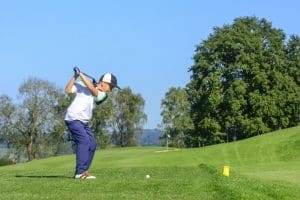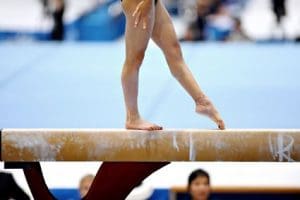Sports Psychology Resources
for Children and Parents
Would like to learn more how Sports Psychology for Children works?
Feel free to take a look at our resources below.
Sports Psychology for Children and Parents
Below are a range of popular questions we get asked by parents and coaches when discussing children’s sport performance and enjoyment of sport. You’ll also find some additional resources too, which should be of help to you.




How does Sports Psychology for children work?
Sports psychology sessions with children typically do not last as long as adults. 45 minutes is likely to be the maximum time frame for a session with a child who is aged between 9 and 16 years old. It is not uncommon to do 30 minute online sessions via Skype, Zoom, WhatsApp or Facetime. We rarely support children under the age of 8 years old. Sessions for children, especially younger children, are likely to be quite active sessions where we may discuss challenges whilst kicking a football on a pitch, hitting a golf ball on a range or bowling a cricket ball. This is because of their concentration skills as well as our intention to help children have fun when playing their sport so that they go on to play with freedom.
Are parents involved in the Sports Psychology sessions?
In the Sports Psychology sessions we like to involve parents in some way. We agree with your child the best way for it to happen. Some children may prefer that you sit in the session and contribute – if that helps them open up and feel more relaxed, this approach is fine. Other children are more comfortable with their parents out of the way. In this case, we’d spend 10-15 minutes at the end of the session discussing what we had covered in the session as a team with the parent(s). On occasions, we work solely with the parents so that they can reflect on their behaviours and work with their child or children differently. We also have a range of resources that parents can take away to improve their knowledge of sports psychology and what to do or what not do around their children before, during and after competitive events and training sessions.
What are common challenges that you help children with?
Sports psychology covers a wide range of areas from developing mental toughness to improving confidence and communication skills. Mental health prevention, dealing with injuries and skill acquisition are other areas. However, to make things easier for you, below is a list of our top 10 common challenges that we help children with.
- Dealing with criticism from coaches and teammates
- Being too hard on themselves during a match or competitive event
- Hiding in the background and not expressing themselves fully
- Lack of enjoyment or thoughts of quitting sport
- Poor body language
- Troubles communicating with other people
- Catasphrophising about their form or their future (eg. In academy’s a lot of pressure is put on children which can impact on their confidence levels)
- Worrying too much about what other people think
- Loss of skills (eg. An inability to transfer practise and training to competitive events or lost move syndrome in gymnastics)
- Being too nervous before competing
Demystifying Mental Toughness Podcast

Demystifying Mental Toughness is a podcast for people who want to reach their goals faster and are curious what high performing athletes and professionals do to fulfil their potential. If you’re a motivated athlete, coach, sport psychologist, mental game coach or executive listen in for proven and practical advice in this podcast.
How do I know if Sports Psychology coaching will work for my child?
1-2-1 sports psychology coaching can be a very effective method to improve children’s enjoyment and sport performance levels whilst making lasting changes to their overall mindset and providing valuable life skills. We are very lucky to have had a lot of success in this department in the last 10 years. However, that said, we cannot guarantee results in every case. Each individual’s results do vary as every situation is different. Being motivated and open-minded are 2 keys to sports psychology tools working well.
Can Sports Psychology coaching help my child enjoy their sport more?
Most parents face this challenge from time to time and can struggle encouraging their children in sports. At some point it’s pretty inevitable that something happens and your child or children don’t want to go to train or compete.
So how, as parents, can we help them get over that?
One helpful thing is to understand why. Have they burnt out and done too much? Is it lack of motivation? Is it that their interests have changed? Or are their coach or you, as parents, putting them under too much pressure?
Once you have worked out the cause then you’ll be better placed to find a solution. Sometimes the best and only solution, though very difficult for parents, is for the child to walk away from the sport for a short time or for good.
Below are 2 quizzes that parents have found find very helpful in finding the cause of their child’s unhappiness.
If you ask your child or children to take the quiz and you also take the parental quiz (without comparing notes). Then go on to discuss both results. It should open up a nice conversation and help you get a better feel for why your child chooses to play sport and where things have gone off course.
Click on the links below to find out more:


